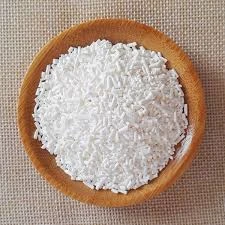
Understanding E330 as an Essential Acidity Regulator in Food Products
Understanding E330 The Role of Citric Acid as an Acidity Regulator
In the world of food additives, E330, commonly known as citric acid, plays a crucial role as an acidity regulator. Derived primarily from citrus fruits like lemons and limes, citric acid is a weak organic acid that is widely recognized for its remarkable properties as a preservative, flavor enhancer, and pH stabilizer. This article delves into the significance of E330 in the food industry, its benefits, and its various applications.
The Chemical Structure and Properties of Citric Acid
Citric acid is a naturally occurring organic acid with the chemical formula C6H8O7. It is a tricarboxylic acid, which means it contains three carboxyl functional groups. This structure allows citric acid to act effectively as a chelating agent, meaning it can bind to metal ions and prevent them from catalyzing spoilage reactions. As a result, citric acid not only helps in maintaining the quality of food but also enhances its safety.
Functions of E330 in the Food Industry
1. pH Control One of the primary functions of E330 is to regulate the acidity of food products. By lowering pH, citric acid can inhibit the growth of pathogens and spoilage microorganisms, extending the shelf life of food items. This is particularly important in products like jams, jellies, canned goods, and beverages.
2. Flavor Enhancement Citric acid imparts a sour taste, which is particularly desirable in a variety of foods and drinks. It balances sweetness and enhances overall flavor profiles in products such as soft drinks, candies, and sauces. Its presence can elevate the sensory experience of consuming these products.
3. Preservative Properties E330 acts as a natural preservative. It minimizes oxidation, a process that can lead to rancidity and spoilage. By incorporating citric acid into food formulations, manufacturers can create products that maintain their flavor, color, and texture over time.
e330 acidity regulator

4. Antioxidant Effects Citric acid exhibits antioxidant properties, which can help in preventing the degradation of vitamins and other sensitive nutrients in food. This is particularly important in the context of fortified products where preserving the nutritional content is essential.
Health and Safety Considerations
Citric acid is generally recognized as safe (GRAS) by food safety authorities, including the U.S. Food and Drug Administration (FDA) and the European Food Safety Authority (EFSA). It is not only a natural substance but also poses minimal health risks when consumed in moderate amounts. However, it can cause irritation in individuals with sensitive skin and mucous membranes when used in concentrated forms.
Additional Applications Beyond Food
While E330 is predominantly recognized for its role in the food industry, its applications extend to various other fields. In the cosmetics and personal care industry, citric acid is used to adjust the pH of skincare products, thus enhancing their stability and efficacy. Furthermore, it serves as a chelating agent in cleaning products, helping to enhance their effectiveness by binding to metal ions that could hinder cleaning processes.
Conclusion
In conclusion, E330, or citric acid, is an indispensable additive in the food industry, significantly contributing to the quality, safety, and flavor of various products. Its multifunctional attributes, ranging from acidity regulation to natural preservation, underscore its importance in food formulation. As consumers grow increasingly conscious of food quality and safety, the continued use of natural additives like citric acid is likely to remain a cornerstone in food technology. Understanding the role of E330 helps us appreciate the complexity and thoughtfulness that goes into ensuring the foods we consume are safe, enjoyable, and nutritious.
-
Sodium Dichloroisocyanurate Safety Handling ProtocolsNewsJul.29,2025
-
Mining Chemicals for Copper Extraction Processes GuideNewsJul.29,2025
-
Fertilizer for Sale Shipping and Storage TipsNewsJul.29,2025
-
Dimethyl Disulfide as Sulfurizing AgentNewsJul.29,2025
-
Benzotriazole Safety Data Handling and Storage GuidelinesNewsJul.29,2025
-
Ammonium Bicarbonate Safety Handling Storage GuidelinesNewsJul.29,2025
-
The Transformative Role Of Trichloroisocyanuric Acid in Water TreatmentNewsJul.23,2025
Hebei Tenger Chemical Technology Co., Ltd. focuses on the chemical industry and is committed to the export service of chemical raw materials.
-

view more DiethanolisopropanolamineIn the ever-growing field of chemical solutions, diethanolisopropanolamine (DEIPA) stands out as a versatile and important compound. Due to its unique chemical structure and properties, DEIPA is of interest to various industries including construction, personal care, and agriculture. -

view more TriisopropanolamineTriisopropanolamine (TIPA) alkanol amine substance, is a kind of alcohol amine compound with amino and alcohol hydroxyl, and because of its molecules contains both amino and hydroxyl. -

view more Tetramethyl Thiuram DisulfideTetramethyl thiuram disulfide, also known as TMTD, is a white to light-yellow powder with a distinct sulfur-like odor. It is soluble in organic solvents such as benzene, acetone, and ethyl acetate, making it highly versatile for use in different formulations. TMTD is known for its excellent vulcanization acceleration properties, which makes it a key ingredient in the production of rubber products. Additionally, it acts as an effective fungicide and bactericide, making it valuable in agricultural applications. Its high purity and stability ensure consistent performance, making it a preferred choice for manufacturers across various industries.











